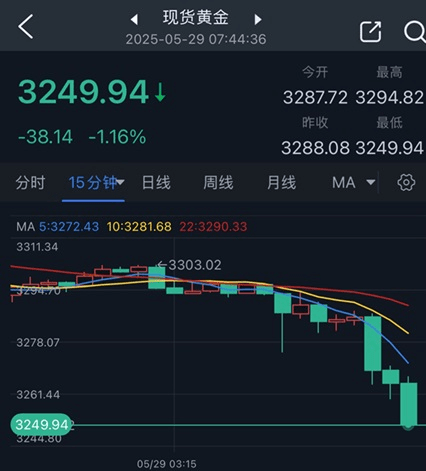According to reports from Bloomberg News on Wednesday evening (May 28) local time, the global tariff plan of U.S. President Donald Trump has been ruled as 'illegal' and blocked by the U.S. Trade Court, dealing a significant blow to one of the pillars of the Republican economic agenda.

(Screenshot source: Bloomberg)
On Wednesday, a panel of three judges at the U.S. International Trade Court in Manhattan ruled in favor of the views of states led by Democrats and some small businesses, who argued that Trump incorrectly invoked the International Emergency Economic Powers Act to justify imposing tariffs.
The International Trade Court stated that the U.S. Constitution grants Congress the exclusive power to regulate trade with other nations, and the President's international emergency powers to protect the U.S. economy cannot override this.
The Trump administration can now appeal this ruling to a federal court.
According to CNN reports, the U.S. International Trade Court ruled to support a permanent injunction against Trump's tariff implementation on Liberation Day, halting Trump's global tariffs before reaching an 'agreement' with most other trading partners. This means that most of Trump's tariffs—but not all—will be suspended.
Affected by this news, market risk appetite quickly warmed up in early trading on Thursday in Asia, with spot gold prices plummeting nearly $40 briefly, latest touching around $3250 per ounce.

(15-minute chart of spot gold source: FX168)
U.S. stock futures surged in response, with Nasdaq futures gaining 1.7%. The dollar strengthened while the safe-haven currency yen weakened.
Bloomberg noted that as Trump faces a series of lawsuits due to executive orders, this ruling is one of his biggest setbacks in court so far; Trump is testing the limits of presidential power through these lawsuits. Others have questioned Trump's efforts to massively lay off federal workers, restrict birth citizenship rights, and cut federal spending approved by Congress.
Since Trump issued a comprehensive executive order announcing the imposition of tariffs on April 2, global markets have experienced severe fluctuations. Following weeks of delays, reversals, and announcements about potential trade agreements, trillions of dollars in market value have evaporated and rebounded.
White House Deputy Chief of Staff Miller responded to the federal court's blocking of the tariff increases, saying, 'The judicial coup has gone out of control.'